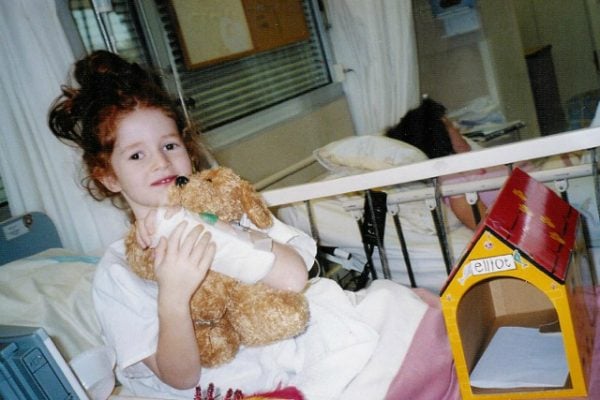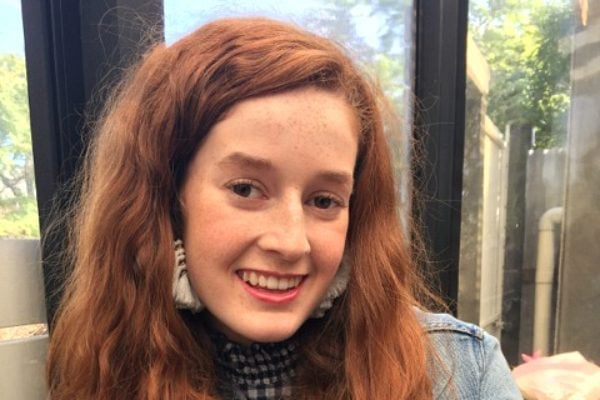
The symptoms of ovarian cancer are frighteningly vague. Abdominal pain. Backache. Bloating. Fatigue. Indigestion. Fullness. All signs that can easily be dismissed or misdiagnosed.
Especially when the person experiencing them is five years old.
South Australian teenager Jemima Leydon was in her first year of primary school when she received her diagnosis: a malignant germ cell tumour on her right ovary. The only, potentially life-saving clue had been pain in her abdomen.
“My parents kind of pushed [the pains] aside, thinking there was just a stomach bug going around in our year level,” the now 17-year-old told Mamamia. “Then Mum leant over at dinner one night and happened to feel my stomach, and she noticed a weird little bump there.”
Fortunately, the family’s neighbour at the time was a GP.
“She came over and examined me and told us that it wasn’t normal, that we should have it checked out,” Jemima said.
A paediatric appointment followed, then scans, and within two days the reception student was under the knife at Women’s and Children’s Hospital, Adelaide, where surgeons removed her ovary. After that, there was four rounds of chemotherapy, and months in and out of hospital.


